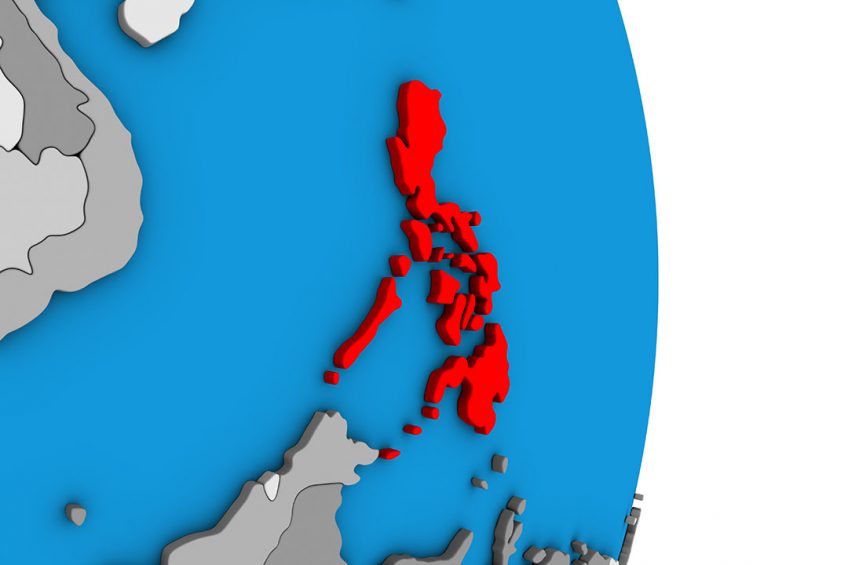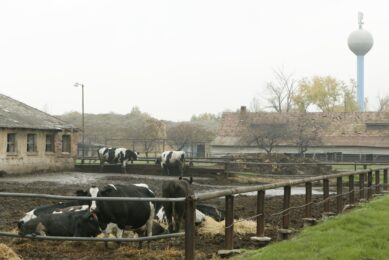ASF Philippines: Carcasses floating in river; more money released

Footage from the Philippines is showing pig carcasses are floating through the Marikina river, which running close to the affected with ASF and the capital Manila. In the meantime, the Philippine government is allocating millions of pesos to help fight the virus.
An example of the footage is shown below. The Marikina river runs at about 3.5 km from the location that was indicated to be infected earlier this week, when the Philippines reported the first outbreaks of the virus in Rizal province to the World Organization for Animal Health (OIE).
30 to 40 pigs seen in Marikina river
Part of the Marikina river flows into a canal, the other half joins the Pasig river, which is running through the heart of the capital Manila. The report states that in Quezon City about 16 carcasses were seen floating. From Marikina City, more downstream, reports come from 30 to 40 dead pigs – some say even 70. On the footage can be seen people dragging the animals out of the water and dragging them to a pit.
The newspaper Philippine Star reported that in total 36 pigs were found in the Marikina river and an additional 3 in a creek in Quezon City. Marikina City mayor Marcelino Teodoro told the media outlet that there are no pig slaughterhouses or piggeries in town, which would mean that the dead pigs could have come from upstream.
According to the news outlet, the carcasses were retrieved and buried 10 feet underground. Fishing in Marikina City has been forbidden, just like other ‘water-related activities’.
What to do to dispose of ASF properly? Read the 18-step overview
Not disposing properly of infected pigs
The discoveries are worrisome given that the virus was confirmed very nearby earlier this week. African Swine Fever requires stringent biosecurity measures – the virus will be spread by carcasses which are not disposed of properly.
So far, at the website of the OIE only outbreaks of dead pigs in Rizal province are reported, although the country’s minister for agriculture, William Dar, confirmed last Monday that the virus has been found in pigs from Bulacan province (north of Manila) too. In the Philippine Star, the provincial veterinarian stated that the village of Pritil in the municipality of Guiguinto is the only location so far in this province where the virus would have been found.
Mr Dar added that samples from other provinces are being checked.
Allocating over 80 million pesos
In the meantime, the Philippine Department of Budget and Management has 82.5 million pesos (€ 1.4 million) in funds for the implementation of measures that aim to prevent the further spread of the virus on the Philippines.
The department will use the funds as follows:
- 31.8 million pesos (€ 555,000): Maintenance of security measures at international airports, particularly for the detection of meat and meat products;
- 27.7 million pesos (€ 483,000): Testing of samples of meat and meat products;
- 17.6 million pesos (€ 307,000): Surveillance and monitoring activities;
- 5.4 million pesos (€ 94,000): Conduct of awareness campaigns and capacity building initiatives.
The Philippine Department of Finance (DOF) has expressed concern over the ASF’s impact on inflation. It emphasised that the government will be on top of this issue to prevent food prices from rising steeply.

Read more about pig production in the Philippines
No pigs from Luzon to Cebu
The neighbouring province of Cebu – a pig-rich island in Central Visayas (mid-Philippines), announced that transporting all pigs from the island of Luzon are banned. Luzon is the island that includes Manila as well as Bulacan and Rizal provinces. In addition, following the news, frozen pork and other pork products from Bulacan and Rizal provinces will also be banned. The ban will last for 100 days.











